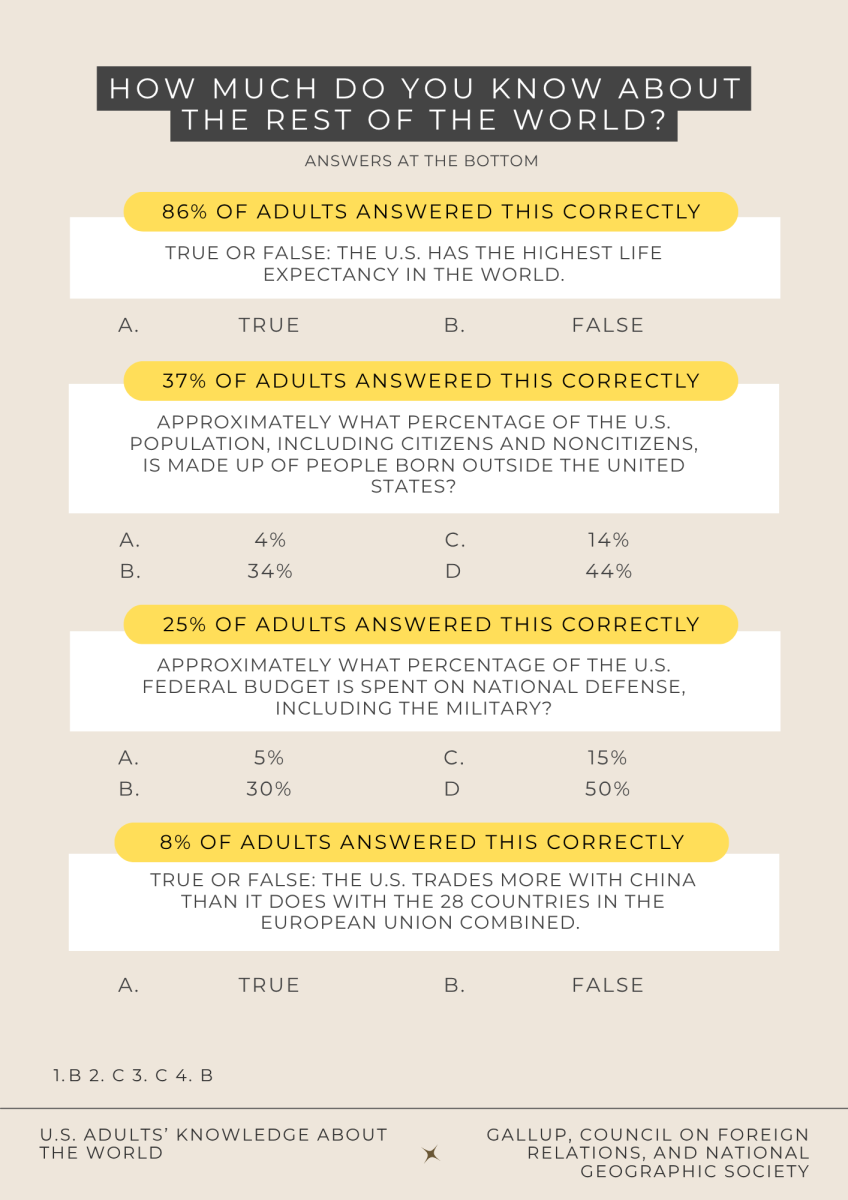Besides the eyesore of purple walls and poles, the noise of students chattering about grades, college applications and clubs is the first thing that hits anyone when entering CHS. The noise is utterly unbearable, often with underlying costs.
CHS’ competitive culture is defined by a constant hum of academic and extracurricular pressure driven by the sheer number of rigorous classes, college admission standards and reinforced by the students, faculty and the general school community.
One hundred sixty % higher than the national average with 26 APs and a 59% AP enrollment rate 24.5% higher than the national average, it’s hard to say CHS is just another high school. Even the ambitious Jay Gatsby would tip his hat down– not in admiration, but in disbelief.
This doesn’t mean CHS is the most cutthroat school in the nation or that competition needs to be eradicated, though. Simply, CHS with all its students, staff and administrators alike need to consider the potential costs in academic and mental performance that the environment could bring.
CHS offers many SEL lessons in homeroom, along with student wellness and mental health resources; yet, the competitive environment can still create stress and unhealthy comparisons– though perhaps not to the same extreme levels as top-tier high schools. When not taking an AP or honors class, a student can feel as if they stick out like a sore thumb. As of 2023, the majority of juniors and seniors were enrolled in at least one AP course. This pressure to keep up academically can have broader consequences; research from the International Journal of Psychology and Educational Studies states that an overly-competitive environment is more likely to produce rifts in friendships and promote immoral behavior, such as cheating.
Nevertheless, college preparation is important, but greater emphasis on life skills is needed. This means fostering an environment where essential moral values – such as responsibility, integrity, compassion and forgiveness–are at the center in an effort to navigate the CHS pressure. School administrators, teachers and counselors can assist by prioritizing character development alongside academic achievements.

According to Harvard University, emotional intelligence – which encompasses skills like self-awareness, communication and empathy – makes up 90% of what drives success in the workforce. By integrating these values in classroom discussions, extracurricular programs and opportunities for community service, CHS can help students develop both strong emotional intelligence and resilience needed to cope with competition in a more balanced manner. Focusing on both emotional and moral values can, along with serving as the groundwork for well-rounded individuals, prepare careers and reduce unhealthy stress while promoting a more collaborative and less cutthroat environment.
According to the University of Colorado Denver, the relentless pressure to be academically proficient often gnaws at the seams of a student’s self-esteem, increasing mental health risks while slumping motivation. At CHS, the rapid-fire need for volunteer hours, leadership positions, awards and recommendation letters doesn’t come from the school directly, but from the intense pressure to meet the expectations of prestigious college admissions.
For example, CHS students often take on extracurriculars not out of genuine interest, but to boost their resume “just for college applications.” This behavior weighs heavily on the desire for approval, not personal growth. On top of that, the demographics of CHS show that the highest racial makeup in CHS are Asians, at 40%. According to the Institute of Labor Economics, an Asian’s drive to compete and be competitive are significantly higher than non-Asians and can cause the environment around them to become more academically rigorous.
Yet, this isn’t to say that achievement and hard work are invalid–simply, it’s important to recognize the fine line between pushing oneself to grow and being driven by external pressures to squeeze into unreal standards.
Ultimately, the competition entrenched over the decades can’t simply disappear. Although this is part of a larger cultural issue, what CHS administrators can control is how success is defined within the school. In this dreary, hyper-competitive world, there’s an opportunity for CHS to lead by example. Teachers can encourage more group and collaborative projects, helping shift away from an individualistic, cutthroat mindset.
Life success – which includes personal fulfillment, career satisfaction, healthy relationships– relies not only on academics, but also on the development of moral and emotional intelligence. Yes, academics can play a significant role, whether it be to a path for a doctor, technician, or more, but research suggests that moral and emotional intelligence are even more crucial in the long-term. These overall help CHS students handle challenges, form relationships and grow in life.
Without action from CHS administration or greater self-reflections from its students, the school could spiral into a peril of chaos, with the relentless chatter continuing to greet those who enter CHS.










Mary Kay Downes • Dec 24, 2024 at 1:18 pm
Rather than trying to check all the boxes, choose an extracurricular- even better choose one that is journalism related and make it your passion. Scores of my former Odyssey students did just that and not only did they enjoy their time in 229, they absorbed life skills that have made them very successful!